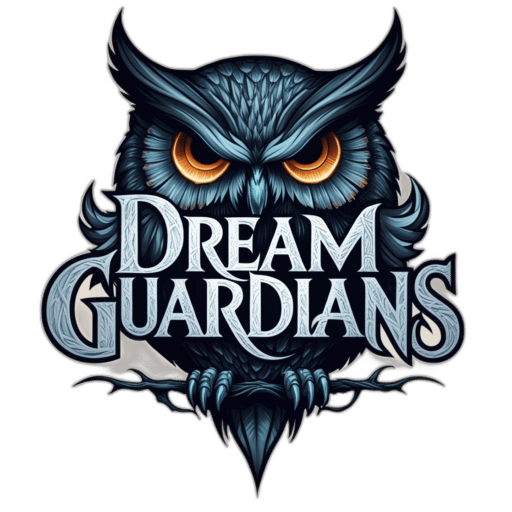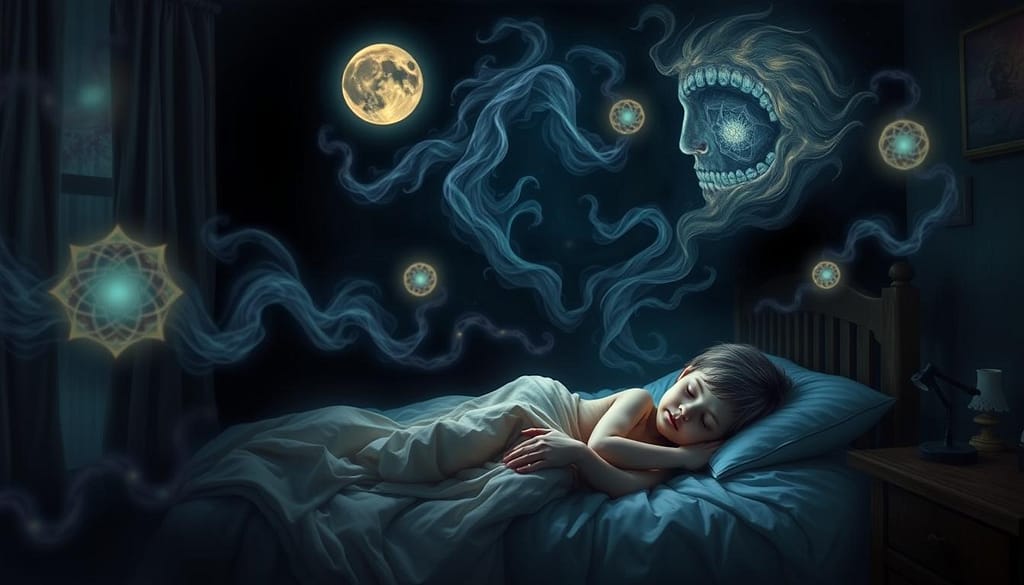Night terrors, also known as pavor nocturnus or sleep terror disorder, are often misunderstood. These intense episodes of fear and confusion during sleep are more than just bad dreams. They are a distinct form of sleep disturbance that requires a clear understanding to address effectively. Unfortunately, many myths about sleep and night terrors persist, muddling the facts and complicating the path to proper diagnosis and treatment.
Experts and researchers distinguish night terrors from other sleep disturbances due to their unique characteristics and underlying causes. It’s crucial to separate fact from fiction and address these misconceptions to help those affected by night terrors. In this section, we will explore the myths surrounding night terrors and provide accurate information to dispel them.
Key Takeaways
- Night terrors are a form of sleep terror disorder, different from nightmares.
- Pavor nocturnus is another term for night terrors.
- Many common beliefs about night terrors are actually myths.
- Understanding the true nature of night terrors is essential for proper diagnosis.
- Addressing misconceptions can lead to better management of these sleep disturbances.
Understanding Night Terrors: What They Really Are
Night terrors, also known as sleep terror disorder, are a type of sleep problem. They happen during non-REM sleep. People may scream and thrash without remembering it in the morning.
What Are Night Terrors?
Night terrors are a serious sleep problem. They don’t happen in REM sleep like nightmares do. Instead, they occur in non-REM sleep.
They are marked by sudden fear and confusion. People may have a fast heartbeat, sweat, and breathe fast. Knowing about night terrors helps us understand sleep better.
Night Terrors vs. Nightmares
It’s important to know the difference between night terrors and nightmares. Nightmares happen in REM sleep and are remembered in the morning. Night terrors, on the other hand, occur in non-REM sleep and are not remembered.
Night terrors are marked by loud screams and intense fear. They don’t have vivid dreams like nightmares do. Here’s a comparison:
| Aspect | Night Terrors | Nightmares |
|---|---|---|
| Sleep Stage | Non-REM Sleep | REM Sleep |
| Memory | No recollection | Recollection of the dream |
| Physical Symptoms | Thrashing, sweating, rapid heartbeat | Minimal physical reaction |
Common Symptoms and Signs
To recognize night terrors, look for certain signs. People may suddenly sit up, scream, and show fear. They might have wide-open eyes and breathe fast.
Other signs include sleepwalking and crying. These episodes usually happen early in sleep and can last a few minutes. Spotting these signs helps us tell night terrors apart from other sleep problems.
Who Is Most Affected?
Night terrors mostly hit children, especially during early development. Up to 6% of kids will have night terrors, often starting between ages 3 and 7. Adults can also have them, especially if they’re stressed or anxious.
Genetics also play a big role. If your parents had sleep problems, you might be more likely to have night terrors. Knowing the risk factors helps us manage night terrors in both kids and adults.
Debunking Common Myths About Night Terrors
Many people think night terrors mean serious mental health issues. But, they are actually a type of sleep problem called parasomnia. The American Academy of Sleep Medicine says night terrors are more about sleep issues than mental health.
Some think kids will just grow out of night terrors. But, waiting too long can be dangerous. Understanding sleep disturbances is key because untreated sleep problems can cause more issues. Dr. Charles Bae from the Cleveland Clinic says early help and special plans are needed to manage night terrors well.
To clear up these wrong ideas, let’s look at some important points:
- Mental Health: Night terrors are not linked to mental health problems.
- Duration: While some kids might stop having night terrors, many need medical help.
- Impact: Not treating night terrors can cause big problems during the day.
Dr. Charles Bae says, “Early action and custom treatment plans are key for understanding sleep disturbances and dispelling night terror myths.”
Studies show we need to tackle sleep terror facts with the right info and expert care. By using advice from trusted sources and doctors, we can better understand night terrors. This helps improve life for those who deal with them.
Conclusion
Night terrors are different from nightmares. They happen during deep sleep. This is why they are scary and hard to wake up from.
Children often have night terrors. It’s important to know the signs. This helps us take care of them better.
Myths about night terrors can be confusing. Knowing the truth helps us treat them right. This makes a big difference in how we help.
Getting help from doctors is key. They can give us good advice. This advice helps us manage night terrors better.
Learning about sleep is very important. It helps us understand night terrors better. This knowledge helps everyone sleep better.
Teaching others about sleep is crucial. It makes a big difference in our lives. It helps us all sleep better and feel better too.
FAQ
What are night terrors?
Night terrors are a sleep disorder. They happen when a person is not fully awake. It makes them feel scared and they might scream or move a lot.
Are night terrors the same as nightmares?
No, they are not the same. Night terrors happen when you are not dreaming. Nightmares are scary dreams that happen when you are dreaming.
What are common symptoms of night terrors?
Symptoms include sudden screams and feeling very scared. People might also sleepwalk or sweat a lot. But they don’t remember it in the morning.
Who is most affected by night terrors?
Kids between 3 and 12 years old get night terrors a lot. But adults can get them too, though it’s less common. Some people might be more likely to get them because of their family history.
Are night terrors a sign of mental health issues?
No, they are not a sign of mental health problems. They are just a sleep issue. Getting help from a doctor is important to manage them.
Can night terrors be outgrown without any intervention?
Some kids might stop having night terrors as they get older. But others might still have them. It’s best to talk to a doctor to find the right way to help.
Discover more from Dream Guardians
Subscribe to get the latest posts sent to your email.


